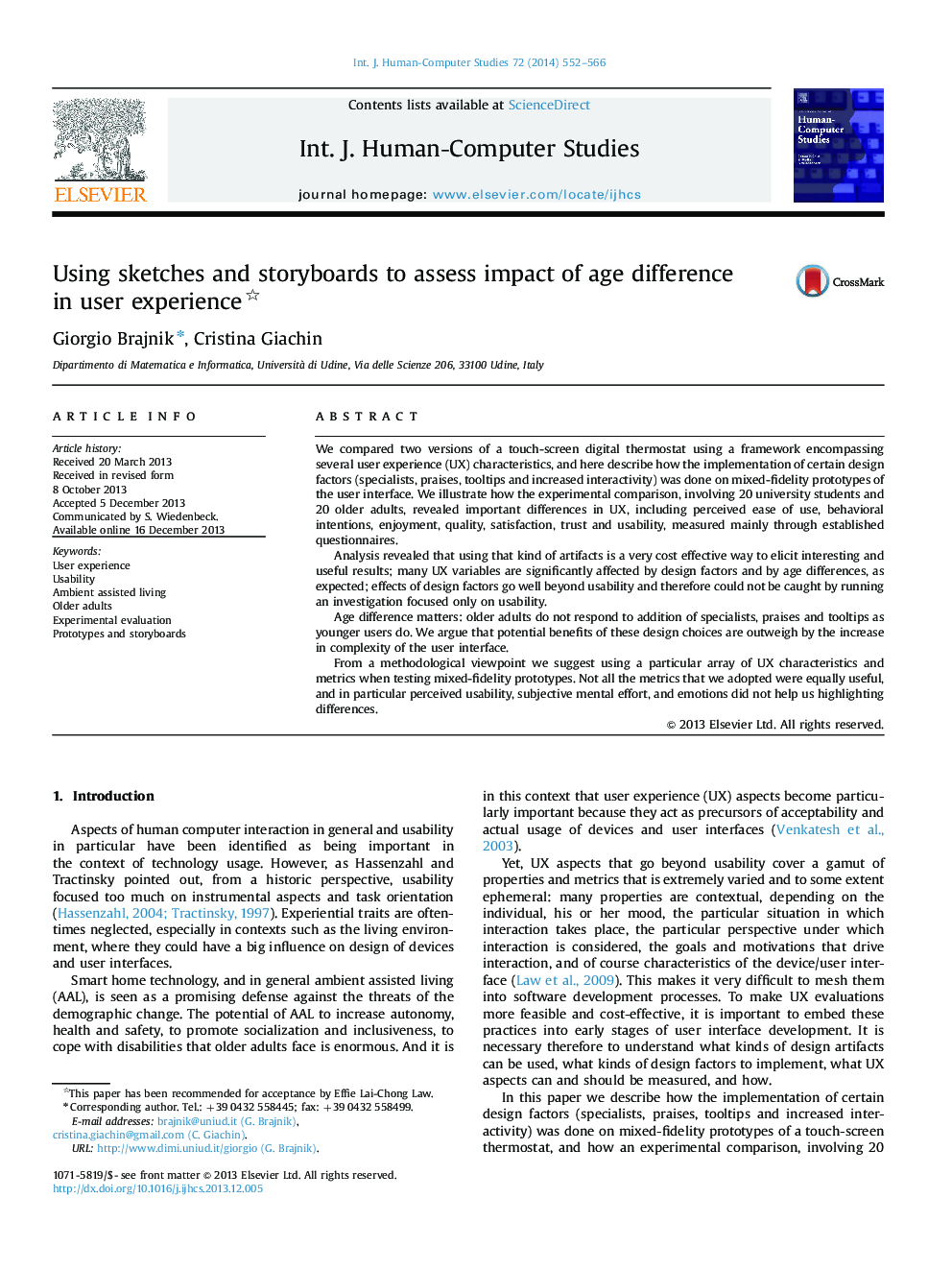| Article ID | Journal | Published Year | Pages | File Type |
|---|---|---|---|---|
| 400679 | International Journal of Human-Computer Studies | 2014 | 15 Pages |
•Mixed-fidelity prototypes are viable for investigations of UX aspects.•Specialists, praises, tooltips affect UX on a digital thermostat.•What works well for younger users does not for older adults.•Results go well beyond usability.•Perceived ease of use, enjoyment, quality, satisfaction and trust are useful.
We compared two versions of a touch-screen digital thermostat using a framework encompassing several user experience (UX) characteristics, and here describe how the implementation of certain design factors (specialists, praises, tooltips and increased interactivity) was done on mixed-fidelity prototypes of the user interface. We illustrate how the experimental comparison, involving 20 university students and 20 older adults, revealed important differences in UX, including perceived ease of use, behavioral intentions, enjoyment, quality, satisfaction, trust and usability, measured mainly through established questionnaires.Analysis revealed that using that kind of artifacts is a very cost effective way to elicit interesting and useful results; many UX variables are significantly affected by design factors and by age differences, as expected; effects of design factors go well beyond usability and therefore could not be caught by running an investigation focused only on usability.Age difference matters: older adults do not respond to addition of specialists, praises and tooltips as younger users do. We argue that potential benefits of these design choices are outweigh by the increase in complexity of the user interface.From a methodological viewpoint we suggest using a particular array of UX characteristics and metrics when testing mixed-fidelity prototypes. Not all the metrics that we adopted were equally useful, and in particular perceived usability, subjective mental effort, and emotions did not help us highlighting differences.
